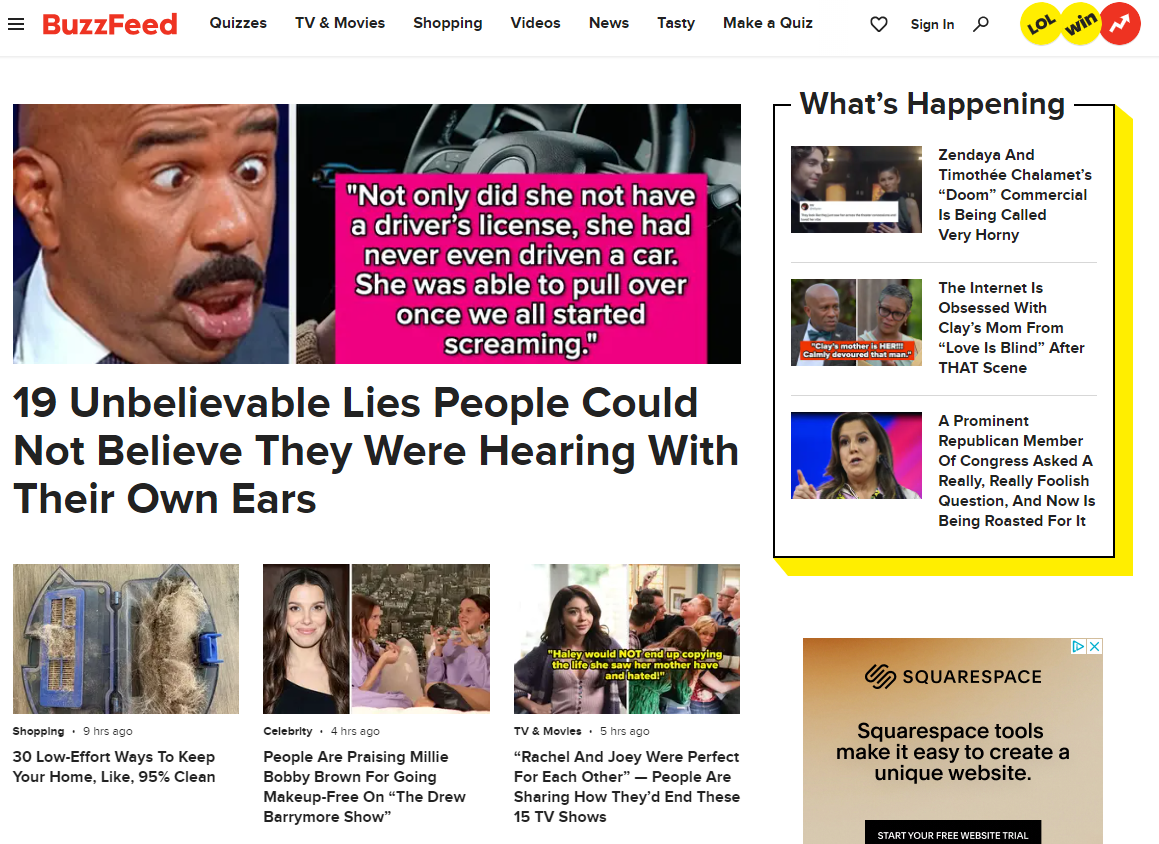In a Country of Scrollers, Who’s Still Reading?
Source: Squarespace/Unsplash
Critical Thinking Skills are Low
In an era dominated by rapidly evolving technology and an endless stream of bite-sized content, the need for Americans to read more has never been more pressing. The ramifications of a society with dwindling critical thinking skills, fueled by misinformation from television and clickbait-riddled publications, highlight the urgency of rekindling a love for literature.
As a society, Americans are facing a critical thinking crisis. The ability to analyze, evaluate, and synthesize information is essential for navigating an increasingly complex world. Reading, particularly engaging with well-researched, diverse literature, serves as an exercise for the mind, honing critical thinking skills and fostering a nuanced understanding of various perspectives.
Most people that do read news online often either only read the title of an article before sharing it if it aligns with their opinions or beliefs. Additionally, many who do open the article either don’t read the whole text or only skim the section titles.
Source: Squarespace/Unsplash
TV is Feeding Misinformation
In the evolution of media, television, once lauded for its potential as an educational medium, has undergone a transformation into a powerful source of misinformation. The contemporary media landscape is marked by a surge in sensationalized news and opinion-driven programming, both of which have played a significant role in distorting public discourse. The advent of 24-hour news cycles, coupled with the competitive nature of television journalism, has led to the prioritization of attention-grabbing headlines and provocative narratives over nuanced, fact-based reporting.
This shift in focus has far-reaching consequences, influencing public perceptions and shaping the way individuals engage with current events. The sensationalism prevalent in televised news often prioritizes entertainment value over informational accuracy, fostering a culture of sound bites and instant reactions rather than fostering a deeper understanding of complex issues.
In response to this trend, the act of reading emerges as a powerful antidote, providing individuals with an alternative means of information consumption. Exploring well-researched articles, books, and essays allows readers to delve into more comprehensive and nuanced perspectives on various topics. The written word, free from the constraints of short attention spans and the need for visual stimulation, enables a depth of exploration that television often struggles to achieve.
Source: Squarespace/Unsplash
Funding for Education is at an All-Time Low
With education funding hitting record lows, the quality of learning materials and resources is at risk. Reading, whether through libraries, digital platforms, or affordable second-hand books, offers a cost-effective way for individuals to continue their education independently. It empowers people to stay informed, broaden their knowledge base, and counteract the detrimental effects of inadequate educational funding.
Books, with their in-depth analyses and carefully crafted narratives, offer readers the opportunity to engage with a subject matter over an extended period, fostering critical thinking and a more profound understanding. Articles from reputable sources contribute to a well-rounded comprehension of current affairs, providing context and multiple viewpoints that contribute to a more informed citizenry.
Source: Squarespace/Unsplash
Short-Form Video is Reducing Attention Span
The prevalence of short-form video content on platforms like TikTok has contributed to a noticeable reduction in attention spans.
Studies indicate that the ubiquity of short-form content may be contributing to a decline in our attention spans. Regular exposure to brief, easily consumable videos conditions our brains to prioritize instant gratification and novelty. Consequently, tasks demanding prolonged concentration, such as reading books or engaging in deep work, may become more difficult. This diminishing attention span poses potential drawbacks for productivity, learning, and overall well-being.
Books, with their immersive narratives and intricate details, encourage sustained focus and cognitive engagement. Rediscovering the joy of reading can be a remedy for the fragmented attention caused by the constant barrage of quick, visually stimulating content.
Source: screenshot from Buzzfeed
Publishers are Pushing Clickbait Instead of Actual Journalism
In an age of digital media, the race for clicks has often compromised the quality of journalism. Clickbait headlines and shallow content prevail, undermining the public's access to well-researched, in-depth reporting. By choosing to read reliable news sources and long-form journalism, individuals can actively support and promote a return to genuine, informative storytelling.
BuzzFeed and The New York Times represent two distinct approaches to journalism, with noticeable differences in style and content. BuzzFeed is known for its clickbaity approach, often relying on sensational headlines and catchy thumbnails to lure readers into its articles. The content is frequently presented in listicle format, breaking down information into easily digestible, numbered lists. While this style has proven effective for generating clicks and engagement, it is criticized for its emphasis on entertainment over depth.
On the other hand, The New York Times is renowned for its commitment to in-depth reporting, analysis, and storytelling. Articles from The New York Times prioritize thorough research, nuanced perspectives, and a more traditional journalistic approach, placing a premium on substantive content rather than the quick appeal of clickbait.
Conclusion
In conclusion, the imperative for Americans to read more is multi-faceted, addressing critical thinking deficits, countering misinformation, bridging educational gaps, and combating the effects of shrinking attention spans. Reading serves as an empowering tool, enabling individuals to reclaim control over the information they consume and fostering a society that values knowledge, critical analysis, and nuanced understanding. Embracing literature is not just a leisurely pursuit; it is a pathway to a more informed, thoughtful, and resilient society.






